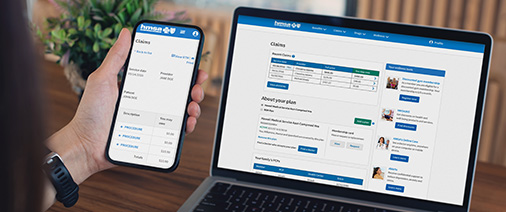Opioids are narcotic medications that are typically used for short-term pain control or to relieve moderate to severe pain for certain health conditions. Examples of opioids include morphine, hydrocodone, and codeine.
What are the risks?
Even when taken as directed, opioids may lead to constipation, nausea, vomiting, dry mouth, sleepiness, dizziness, confusion, depression, irritability, itching, and difficulty breathing. Opioid use over a long period of time can lead to much more serious risks including but not limited to addiction, increased tolerance and dependence, accidental overdose, and death.
What are some alternatives?
Here are some pain management options that may be more appropriate for you:
- Over-the-counter medications
This includes Tylenol (acetaminophen), Advil (ibuprofen), and Aleve (naproxen). Your HMSA Medicare Advantage plan doesn’t cover these, but you can buy them at retail stores for short-term use without a prescription. - Non-opioid prescriptions
Your HMSA Medicare Advantage plan covers:
- Nonsteroidal anti-inflammatory drugs, such as celecoxib.
- Topical anesthetics, such as lidocaine.
- Some antidepressants used for pain, such as duloxetine.
- Some anticonvulsants used for nerve pain, such as gabapentin.
- Musculoskeletal therapy agents, such as baclofen.
- Nonpharmacological therapies
This includes therapies such as acupuncture, chiropractic services, physical therapy, joint injections procedures.
- Devices
These include transcutaneous electrical nerve stimulator, often referred to as TENS.
The best way to prevent an opioid dependence or addiction is to limit their use. If you have chronic pain, talk with your doctor about which option may be the safest and most effective for your pain management.


